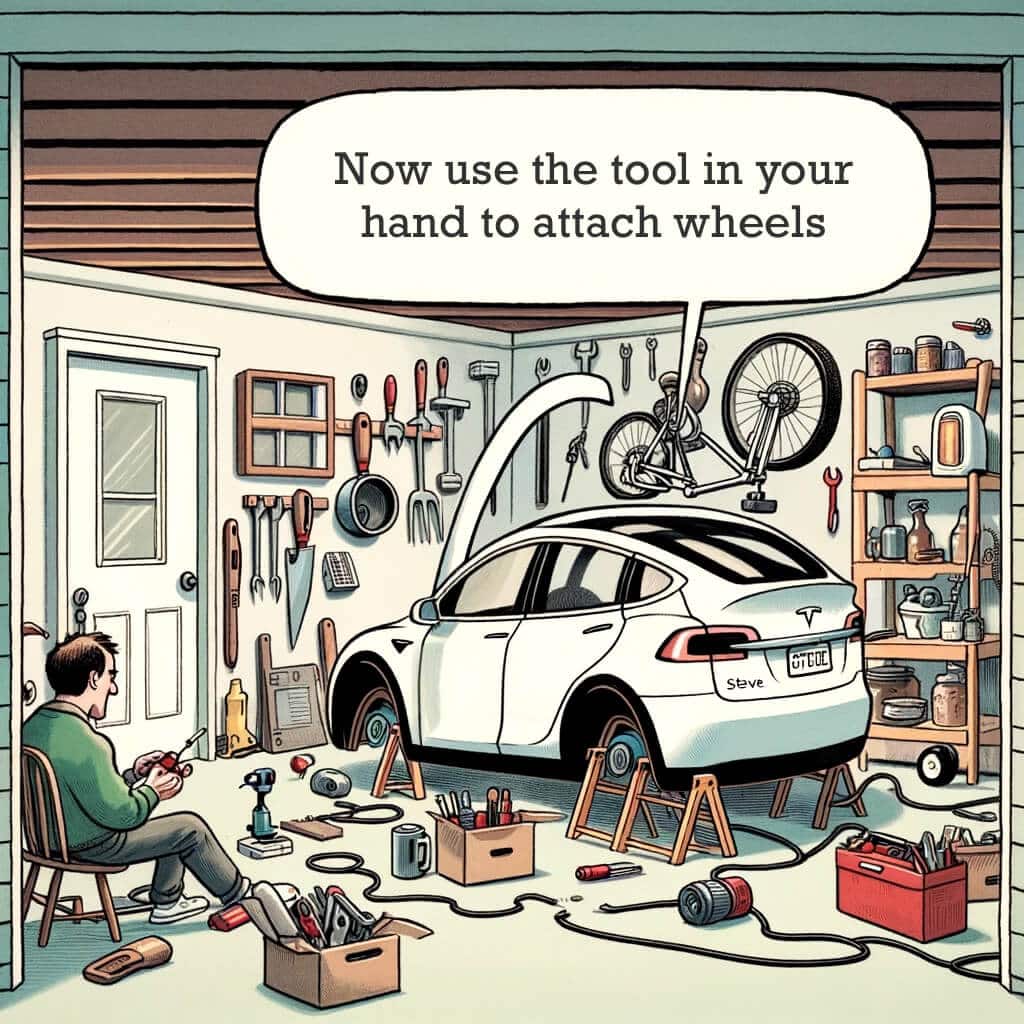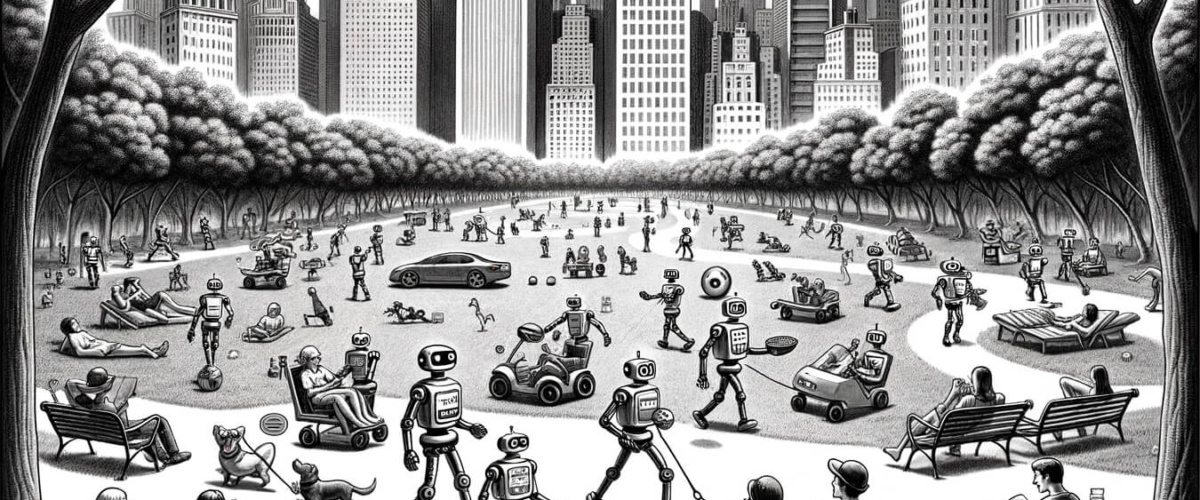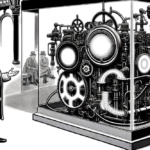Beyond Job Loss: The Empowering Future of AI and AGI
I’ve been discussing the future with a few friends. Most of them feel somewhat threatened by the emergence of AI. They are concerned about their jobs*, positions in life, and their investments and savings. Many have read about the potentially negative scenarios that superintelligence could bring to humanity, including the ‘Everybody Dies’ scenario.
While working as a software developer and utilizing AI daily in my work, I’ve become 10 times more productive than I was before AI’s integration. Being a huge Sci-Fi enthusiast, particularly of the Star Trek series, I often find myself deeply contemplating the future with AI.
As an optimist, I’m somewhat terrified seeing many programming jobs becoming obsolete. However, I hold a vision that is quite positive. With significant changes come challenges, and there will be those who are unhappy. But I believe that a much larger group of people will eventually lead much more fulfilling lives due to intelligent machines.
The future is now, and we are already in the midst of this transformation. So, let’s first explore why I think AI will profoundly impact the world.
What is AI?
It may sound like wishful thinking, but I believe AI holds significant potential for us. To truly grasp how it will change the world, let’s delve into what this machine intelligence really is.
It’s a Thinking Machine
Currently, AI is more appropriately a learning machine, and the term ‘AI’ itself isn’t entirely accurate. ‘AI’ is a buzzword and somewhat fitting, but a more precise term in its current state is Machine Learning. This means it’s a machine capable of learning from its environment and improving over time – and by this, I mean quite rapidly. This is essentially the first stage of AI, and many of us are already witnessing its substantial impact on our lives. It’s still in its infancy; we haven’t seen its full potential yet.
Nevertheless, AI is a learning and thinking machine – an external brain with immense capacity. It embodies the world’s knowledge (like the internet) within a single machine or server, assisting in problem-solving more efficiently. And it will continue to evolve, becoming far more powerful, extending its capabilities from the virtual realm to the physical world.
So, viewing AI as a highly efficient external brain, let’s explore the potential impacts it will have on the world.
The Future with Thinking Machines
I believe the future with AI won’t be entirely dark apocalyptic as we’re often served. From our current perspective, it’s easy to focus on the job obsolescence and disruptions it will bring. However, I view these changes positively.
Observing the current state of the Western world, one doesn’t need to be a sociology expert to sense that something is wrong – to paraphrase Shakespeare:
something is rotten in the state of Denmark. — Marcellus
Over the past few decades, the western world has been transitioning into late-stage capitalism, characterized by the rise of monopolies and the concentration of immense wealth in the hands of a few. This has been at the expense of the poor and, crucially, the middle class. Historically, such disparities have led to revolutions, often with the ruling class facing dire consequences.
While I don’t blame the victors of the market economy game for the decreasing savings of the middle class, I do believe it’s time to critically reassess the system itself. It has had its moments and served us well, but with our current level of technological advancement and education, it’s starting to hold us back. The imbalance is as severe as in third-world countries, where corruption allows a select few to amass wealth at the expense of everyone else. It’s not about hating the players but questioning the game. We need to reinvent the game, and this is where a higher intelligence, serving our needs, can play a transformative role.

Visualizing the future with AI/AGI
Translating my entire vision into words instantly is challenging, but let’s start with some examples.
Imagine a future where we have access to a highly intelligent AI. For simplicity, let’s imagine a similar interface to a ChatGPT. This AI can assist us in creating virtually anything. Initially, this creation will be in the digital realm. From your bedroom or garage, you could write a movie script and use AI to produce a realistic film. Or, if you’re interested in commerce, you could set up an e-commerce site like Amazon over a weekend. The only costs involved would be your time and energy (fuelled by pizza and cola).
This means the cost of producing movies or setting up e-commerce platforms will plummet – no need for large teams of programmers or film crews. You and a few friends could handle it.
Now, let’s take this idea further. Initially, these changes will affect non-physical products, but soon they’ll extend to physical ones. Imagine AI guiding someone in a garage on how to build a car like a Tesla or BMW using common tools and materials found around his whereabouts. This could bring the production of quality products closer to home and make them more affordable.
I hear your concerns about the materials needed for such production. AI could help reduce costs and the need for special materials in car manufacturing. What if we used silicon more than metal? There’s an abundance of sand, a cheap source of silicon. This shift might not cover all needs, but materials like silicon and carbon could be more extensively utilized. And after all, please interpret the examples above as metaphors, not as deeply researched topics.
This will lead to chaos in the short-run
However, this transformation will challenge large corporations like aforementioned Amazon, Tesla and BMW, possibly leading to their downsizing or loss of market dominance. We might see regional leaders emerge.
The fall of such big systems could lead to global chaos. Those in power won’t give up their control easily and will likely resist the widespread adoption of AI, as we’ve already seen by the open letter circulating the internet some time ago. But as the same superpowers have eroded the livelihood of the middle class, the one against many rule will make sure, they will eventually have to accept their fate.
—
Why focus on the middle class?
As sociologist Émile Durkheim stated, a well-fed, large, and content middle class is crucial for a peaceful society. Unfortunately, this ship has pretty much already sailed in western world as we speak.
What Will Happen Then?
Imagine a world where AI, or more precisely, AGI (Artificial General Intelligence), co-pilots everything we do. It assists in achieving whatever you wish. If you choose to do nothing, that’s perfectly fine too. However, I’m convinced that the urge to be inactive won’t last long. Personally, if I had unlimited options, I’d likely continue doing what I do today – writing software and creating music, perhaps not for as many hours, but still engaging in these activities.
This might be my romantic, idealistic, and optimistic view, but I can’t think of anyone who would be content with feeling useless and doing nothing indefinitely. A break might be welcome, but eventually, everyone would want to engage in meaningful activities, probably quite similar to what they do now, but on their own terms.
A common question I encounter when sharing this utopian vision is about the responsibility for the products and services we use daily. The answer lies in the previous paragraph. Most processes will be highly automated and efficient. The few people needed to oversee production or services will find joy and fulfillment in their roles, much like they do now. They’ll be contributing meaningfully, but with the enhanced capabilities and support provided by AGI.
Conclusion
As outlined above, things are likely to get worse and more chaotic before they improve. This period of chaos will predominantly be the struggle of the super powerful. This period is an analog of the conflict between music download sites and major record labels. It’ll involve a lot of wasted time and energy but will ultimately only hasten their inevitable fate. Once AI, or AGI, is out of the box – and it already is – there’s no putting it back. It will only evolve and improve.
Despite these challenges, I view the AI revolution optimistically. I don’t believe our future will be a dystopian scenario like in ‘The Matrix’, where we’re subjugated by machines for their benefit. On the contrary, I envision machines serving us, becoming increasingly efficient in doing so. This will open up a world of possibilities where anyone can achieve anything they desire. The future, as I see it, is one of empowerment and endless potential, courtesy of AI’s evolution.
* A very long footnote
As a lengthy footnote, I’d like to address the common fear of job loss due to AI. There’s a paradox here: people often complain about their jobs, feeling trapped in a never-ending cycle of hard work for inadequate pay. Yet, when the conversation shifts to AI and the potential for job automation, many of these same individuals become defensive and suddenly value their jobs highly. This contradiction reinforces my belief that AI-induced job loss could actually be beneficial for society. It presents an opportunity for us to discover more meaningful and fulfilling ways to spend our time.
I’m a Tech Lead and iOS Developer leading a skilled team in WordPress and mobile app development. If you’re looking for expertise in bringing your digital projects to life, I’d be glad to discuss how we can work together.
For more information about my services and past projects, visit https://teemusk.com/. Feel free to reach out to me on social media for any project inquiries or collaborations.
Let’s make your next project a success!


